If you’ve been experiencing persistent nasal congestion, difficulty breathing through your nose, or recurrent ear infections, you may be suffering from a condition known as adenoiditis. This article will highlight the common symptoms associated with adenoiditis, helping you understand if you should seek medical attention. From a stuffy nose that just won’t go away to excessive snoring and even persistent earaches, we’ll walk you through the signs that could indicate a problem with your adenoids. So, if you’ve been wondering why you’ve been feeling under the weather lately, read on to discover more about the common symptoms of adenoiditis and what you can do to find relief.
Common Symptoms of Adenoiditis
Adenoiditis is a condition that occurs when the adenoids, small glands located at the back of the throat, become inflamed and infected. It is most commonly seen in children but can affect individuals of all ages. One of the key aspects of managing adenoiditis is recognizing the symptoms early on, as prompt treatment can help prevent complications. Here are some common symptoms of adenoiditis that you should be aware of:
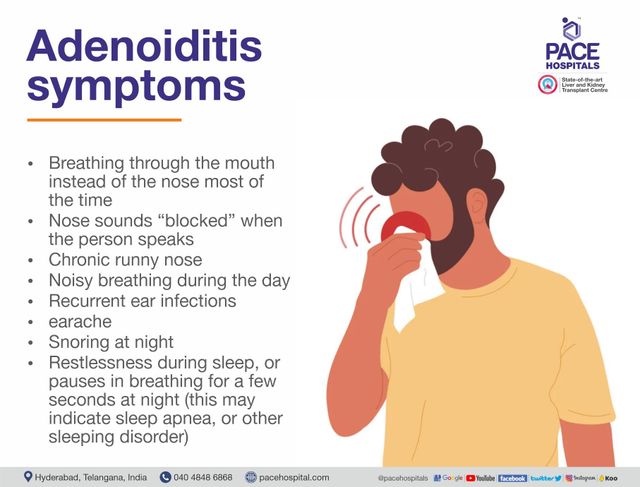
Sore Throat
One of the most prevalent symptoms of adenoiditis is a sore throat. The inflammation and infection of the adenoids can cause discomfort and pain in the throat, making it difficult to swallow or talk. This symptom can range from mild to severe and is often accompanied by other symptoms such as nasal congestion and runny nose.
Nasal Congestion
Nasal congestion is another common symptom of adenoiditis. The inflamed adenoids can block the nasal passages, leading to difficulty in breathing through the nose. This can result in a stuffy or blocked nose, making it challenging to get enough air and causing discomfort.
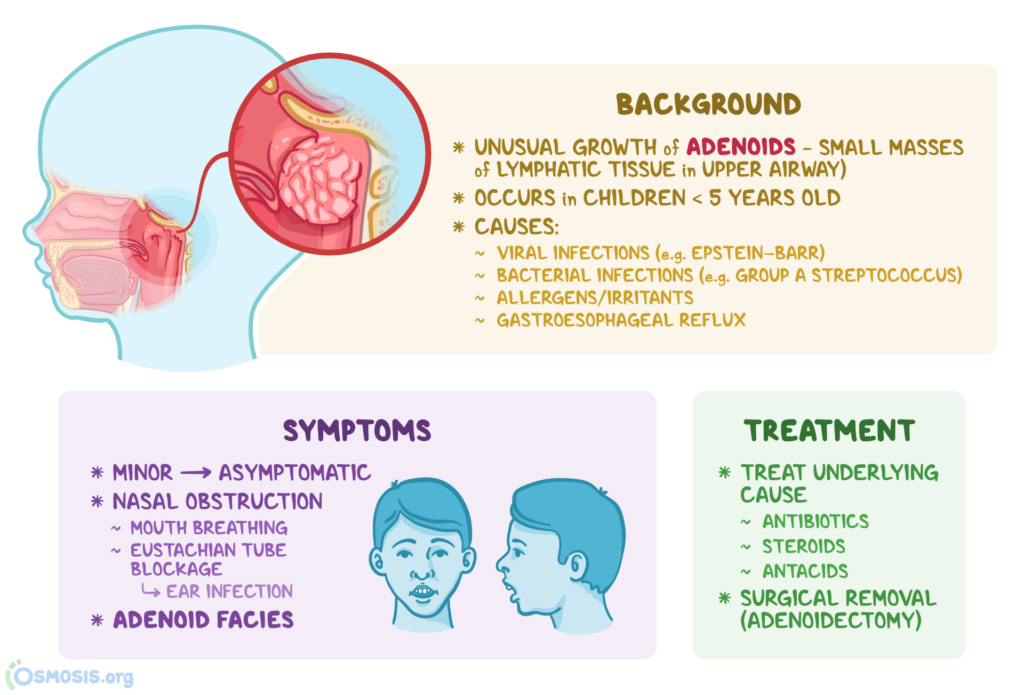
Runny Nose
Individuals with adenoiditis often experience a runny nose. The inflammation and infection can trigger excessive mucus production, leading to a constant flow of nasal discharge. This can be particularly bothersome, as it may result in frequent nose wiping and nasal congestion.
Earache
Adenoiditis can also cause earaches. The adenoids are located near the Eustachian tubes, which are responsible for equalizing air pressure in the middle ear. When the adenoids become infected and swollen, they can obstruct the Eustachian tubes, leading to ear pain and discomfort. This symptom can be particularly distressing, especially for children who may have difficulty expressing their discomfort.
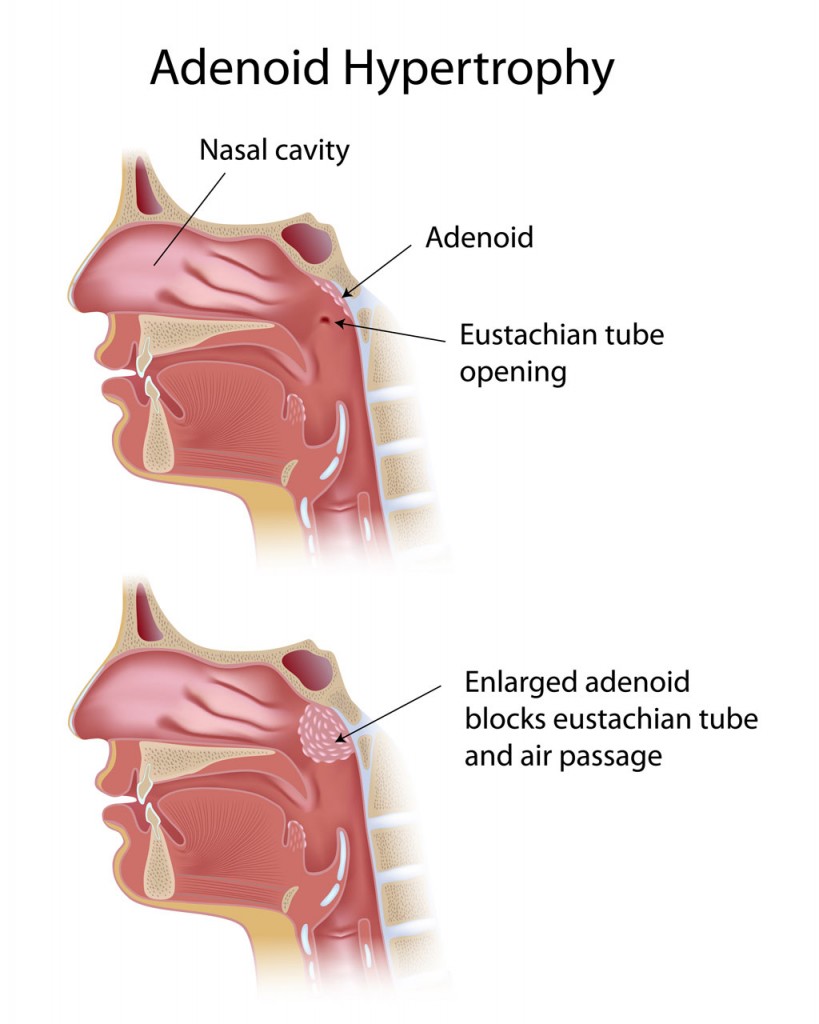
Snoring
Snoring is another common symptom associated with adenoiditis. The enlargement of the adenoids can obstruct the airway, leading to turbulent airflow during sleep. This can result in snoring, which may disrupt sleep quality and disturb the sleep of others. If you or your child snore loudly and consistently, it is essential to consider adenoiditis as a possible cause.
Breathing Difficulties
Adenoiditis can cause breathing difficulties, particularly during physical activities or while sleeping. The swollen adenoids can narrow the air passages, making it harder to breathe freely. Individuals with adenoiditis may experience increased effort in breathing, shortness of breath, and a feeling of suffocation or tightness in the chest.
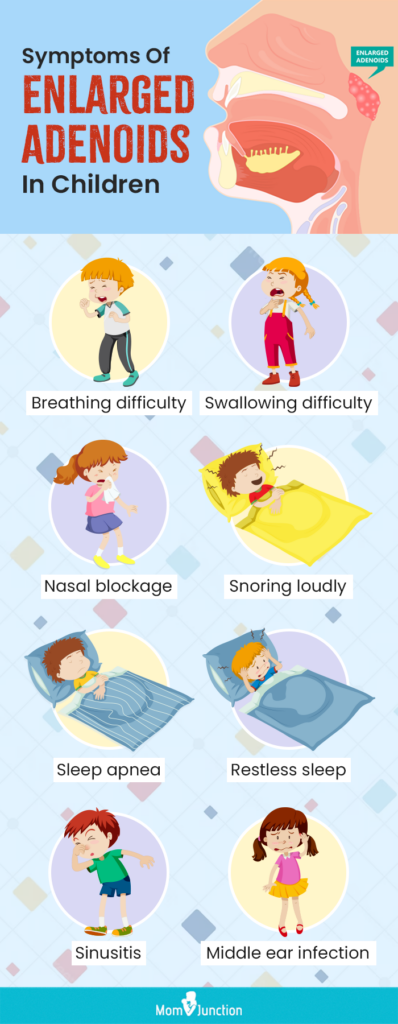
Sleep Apnea
Sleep apnea is a severe complication that can arise from adenoiditis. It is a sleep disorder characterized by pauses in breathing during sleep. The enlarged adenoids can obstruct the airway, leading to recurrent episodes of breathing cessation. This can disrupt sleep patterns, causing excessive daytime sleepiness, poor concentration, and irritability. If you or your child frequently experience interrupted breathing during sleep, seeking medical attention is crucial.
Fever
Fever is a typical symptom of an infection, including adenoiditis. The body’s immune response to the inflamed and infected adenoids can cause a rise in body temperature. Fever is often accompanied by other symptoms such as fatigue, body aches, and general malaise. Monitoring body temperature and seeking medical advice if a fever persists or becomes severe is important.
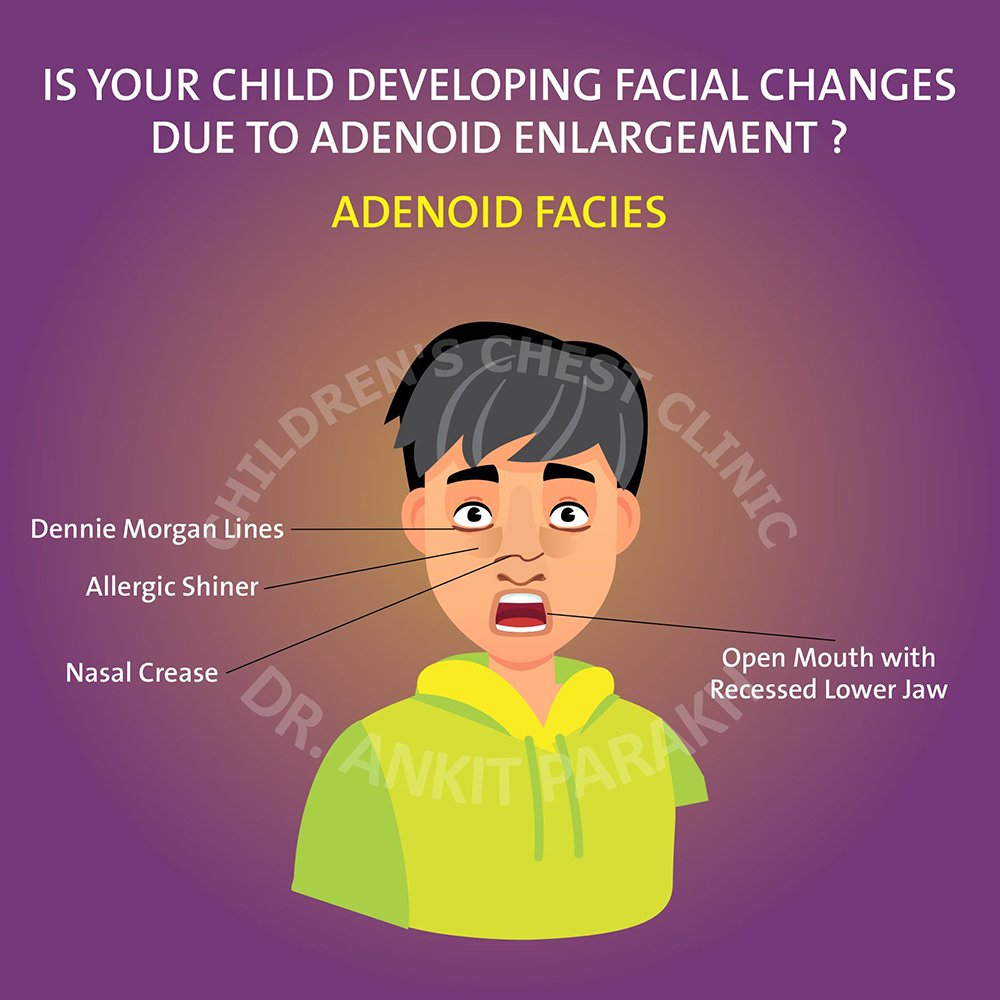
Bad Breath
Adenoiditis can contribute to bad breath, also known as halitosis. The infection and inflammation of the adenoids can result in the production of foul-smelling bacteria or post-nasal drip. This can cause an unpleasant odor in the mouth, even with good oral hygiene. If you or your child consistently have bad breath, despite proper dental care, adenoiditis may be a possible cause.
Swollen Glands
Swollen glands, referred to as lymphadenopathy, can occur with adenoiditis. The lymph nodes near the infected adenoids may become swollen and tender. These glands are part of the body’s immune response and can indicate an ongoing infection. Feeling for enlarged glands around the neck or jawline can be helpful in identifying adenoiditis.
Recognizing the common symptoms of adenoiditis is essential for timely diagnosis and management. The key symptoms to watch out for include sore throat, nasal congestion, runny nose, earache, snoring, breathing difficulties, sleep apnea, fever, bad breath, and swollen glands. If you or your child experiences any of these symptoms, it is advisable to seek medical attention for a proper evaluation and appropriate treatment. Early intervention can help alleviate discomfort, prevent complications, and promote a speedy recovery.
Watch This Video Below
Related Terms About Common Symptoms of Adenoiditis
How Do You Know If You Have Adenoid Problems, Signs Adenoids Have Grown Back, Signs Adenoids Need To Be Removed, Signs Adenoids Need To Come Out, Signs And Symptoms Of Adenoiditis, Signs Of Issues With Adenoids, Signs Symptoms Of Adenoids And Tonsils, Symptoms Of Adenoiditis, Symptoms Of Adenoiditis In Child, Symptoms Of Adenoids And Tonsils